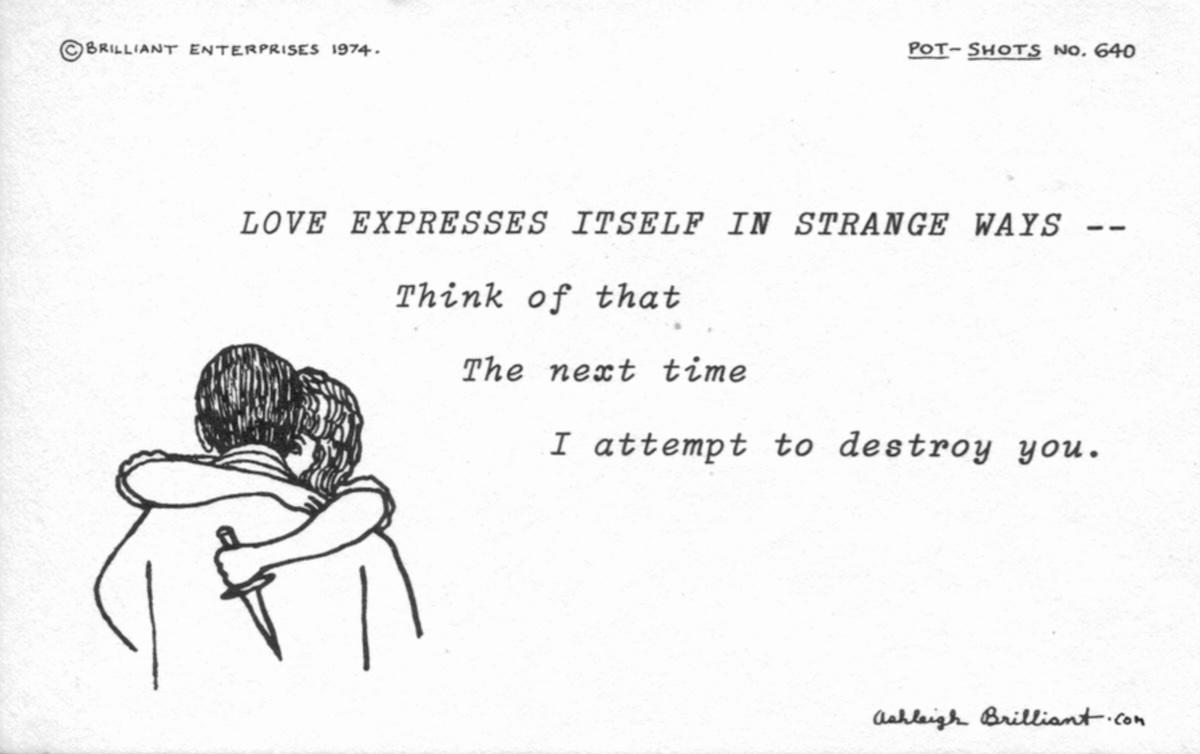Sing!

In a once-popular song, written in 1935 and attributed to Billie Holiday, these words occur: “You came, you saw, you conquered me.” I doubt very much if whoever wrote the lyrics realized that they were quoting, or misquoting, a message originally said to have been written, 2,000 years earlier, by none other than Julius Caesar.
One reason for its fame was its brevity. After winning a certain battle, Caesar supposedly reported: “Veni. Vidi. Vici.” (“I came. I saw. I conquered.”)
Most popular songs seem to have been about romantic “Love.” But you have to admire how cleverly some songwriters found new ways of saying the same old thing.
A good example was Cole Porter. In one song, called “You’re the Top,” the beloved is compared with a whole list of otherwise unrelated items, each considered in some way to be the best of its kind. And it helped when they could also be made to rhyme. Thus we had:
You’re the Nile
You’re the Tower of Pisa
You’re the smile on the Mona Lisa
You’re sublime
You’re a turkey dinner
You’re the time of a Derby winner
You’re the nimble tread
Of the feet of Fred Astaire
You’re an O’Neill drama
You’re Whistler’s mama
You’re Camembert.
But even some songs that are not about Love have the power to move me. One of these was first published in the summer of 1940. Written by Jerome Kern, it was called “The Last Time I Saw Paris.” Most people who hear it today probably have no idea of the circumstances. It was the first year of World War II, in which the U.S. was not yet involved. But the Nazis had already overwhelmed France, and Paris was under German occupation. Paris had been a favorite destination of American tourists, but such visits were now prohibited. This song struck a chord in the hearts of many who remembered how things used to be, since now there was no certainty that they would ever be like that again. It reminisces about things like the tree-lined streets and the sidewalk cafés. And the last line was particularly poignant: “No matter how they change her, I’ll remember her that way.”
Of course, certain songs have had powerfully emotional appeal for generations long past. “La Marseillaise,” which we know today as the French national anthem, was written in 1792, at the time of the French Revolution – but originally had nothing to do with the city of Marseilles, on the south coast. It was written in Strasbourg, on the eastern border, where France was at war against enemies bent on suppressing the Revolution. The name came from the fact that the song was first heard in Paris, sung by volunteers arriving from Marseille.
Another song stirring deep emotions – “Home Sweet Home,” was written by John Howard Payne, an American who himself may be said to have never really had a home. He spent much of his life traveling. In his last ten years he served as the U.S. Consul in Tunis in North Africa, where he died in 1852. But his song became emblematic of every thought conjured up by the words “There’s No Place Like Home.” One indication of its power is that, during the American Civil War, Union soldiers were forbidden to be heard singing it, because it worsened homesickness, leading to desertions.
There is another expression of sadness at thoughts of home, which occurs in the Old Testament – and it has an interesting connection with an American folk song. At one time, the people of Israel (which they called Zion) had been taken as captives to Babylon. This long period of exile is commemorated in the 137thPsalm, which begins:
By the rivers of Babylon, there we sat down.
Yea, we wept when we remembered Zion.
We hanged our harps upon the willows in the midst thereof.
The idea of hanging their harps was that there was too much sadness
for singing.
In the modern version, which is called “There Is a Tavern in the Town,” and which is mostly a farewell (presumably to friends the singer has been drinking with) we find these lines:
“Adieu, adieu kind friends, adieu adieu – I can no longer stay with you –
I’ll hang my harp on a weeping willow tree –
And may the world go well with thee.”
And since I too must, at this point, say adieu to thee, dear Reader, I can only hope that, until next time, the world will go well with thee.






